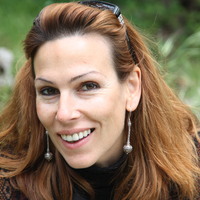Valérie Robin Azevedo is an anthropologist who specialises in Peru. Since 2014, she has been a lecturer at Paris Descartes University in the Faculty of Human and Social Sciences. She has been carrying out ethnographic studies in the Andes for some twenty years. She is Deputy Director of the French Centre for Cultural Anthropology and is in charge of the “Political Anthropology, memory processes and memories and violence in the Andes” line of research at the French Institute of Andean Studies (Mixed Units of French Research Institutes Abroad, Foreign Ministry [MAE]).
She is primarily interested in memorial productions from the war which pitted the Shining Path Maoist guerrillas against the Peruvian state in the two final decades of the 20th century. Her research is centred on Ayacucho, the epicentre of the armed conflict which resulted in some 70,000 deaths and 15,000 disappearances. The Quechua-speaking rural populations in the Andes were the worst affected by the conflict: they constituted 75% of the total number of victims and were the key participants. The civil war, once over, continued in the combatants’ memories. That is where, more often than not, the disagreement between the victors and the vanquished is repeated.
At the turn of the millennium, in a “post-war” setting which gave rise to a Truth Commission, the past regularly came flooding back on the public stage, revealing the rifts and deep-seated hostilities which continue to divide the country politically, economically, ethnically and culturally. Valérie Robin Avezedo’s studies have shown that, when the armed conflict is discussed, local memories and public policies are creating bitter animosity at supervised readings of the history of the conflict, thus highlighting how far the combatants are from making peace with their interpretations of the past. They spar verbally over the (de)legitimisation of the concepts of “terrorist”, “victim” and “hero”. The local memory productions take place in a complex dialectic relationship between macro and micro realms. It has been of utmost importance to her to consider interrelationships, in the sense that the memories of war shape the competing mind sets of those clashing in the discussion on the past violence.
Her current research project is on “The treatment of the war dead: rituals, memorial productions, political challenges” and continues her previous work on memories from the Peruvian civil war, but concentrates on memories about the rituals of death, the way that the memory handles death, and the ensuing political challenges.

